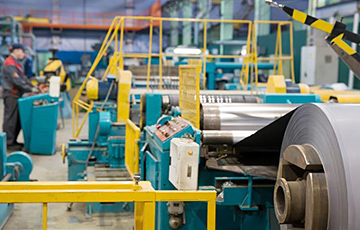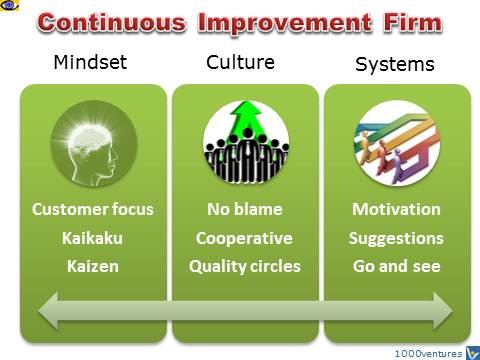
A material manager oversees the purchasing and delivery of materials. They are usually involved in inventory management or raw material management. Their knowledge of the types of raw materials required to make a product is valuable. They should be resourceful in locating these materials. To negotiate the best prices and delivery rates, they must have good relationships with vendors. A materials manager's salary is important. Below are some tips for getting the job.
Job description
A materials manager oversees the purchasing and stock management. A materials manager must be able to solve problems and have a good understanding of stock management. A material manager is responsible for the management of inventory, budgets, efficiencies and other tasks. Besides managing inventory, this position also has to coordinate the supply chain and supervise subordinates. An advanced degree is a prerequisite for this role. The materials manager must also have previous experience in a similar position.
A materials manager typically holds a bachelor's degree in business administration or another related field. However, master's degrees in related fields are preferred if the job calls for a supervisor. Although an advanced degree may be more useful than on the job experience, education can also be beneficial. Before applying for a managerial role, a materials manager must also have at least 3 years' experience in manufacturing or industrial settings.

Responsibilities
Materials managers have the responsibility of evaluating current projects and determining which materials are required for the production process. The materials manager is responsible for keeping track of inventory and stocking spare parts for repairs to faulty products. He or she might also be responsible for training employees on how to use inventory control systems. While these positions are essential in many businesses, not all of them require extensive training.
Job Description: A material manager oversees procurement for a company. He or she also manages the storage and distribution of those materials. This job requires knowledge in logistics, supply chain management, inventory control, as well as logistics. These skills are a plus. They will work closely alongside the purchasing department, vendors, production departments, and other departments to determine needs and plan distribution. These positions require a bachelor's level in business, as well strong analytical abilities.
Education is required
If you are considering a career as a material manager, you should be aware of the educational requirements for this position. This position requires management skills and an understanding of logistics and receiving. As a material manager, you will work with QC personnel and higher-level managers. Your job duties include delegating tasks to subordinates and planning. As a manager, you should be able to assess subordinates' performance and foster harmonious working relationships.
Materials managers typically have a bachelor's degree in a related field. Some companies also require that a materials manager has at least two years' experience before hiring someone with that education. Higher-ranking roles may require more education. Many material managers have certifications such as the American Purchasing Society (CPSCP), and the APICS (Association of Purchasing Professionals).

Salary
The average annual salary of a Materials Manager is about $78,500. This figure is based off 106 TurboTax user salaries. This figure includes taxable wages and tips as well as bonuses. The exact salary can vary depending on your education and experience. To reflect inflation, salary data is adjusted annually. You can read the following to learn about the average salary for a Materials Manager job.
You need to have experience in management before you can become a manager of materials. You should have a good understanding of logistics, receiving, and shipping. A good understanding of the industry you wish to work in is essential if you work in the manufacturing sector. This will help you negotiate the most favorable prices with suppliers. The experience and training a materials manager has will impact the salary.
FAQ
Can we automate some parts of manufacturing?
Yes! Automation has been around since ancient times. The Egyptians discovered the wheel thousands and years ago. Today, robots assist in the assembly of lines.
In fact, there are several applications of robotics in manufacturing today. They include:
-
Automated assembly line robots
-
Robot welding
-
Robot painting
-
Robotics inspection
-
Robots that create products
Automation could also be used to improve manufacturing. 3D printing, for example, allows us to create custom products without waiting for them to be made.
What skills does a production planner need?
To become a successful production planner, you need to be organized, flexible, and able to multitask. You must also be able to communicate effectively with clients and colleagues.
What is the job of a manufacturer manager?
A manufacturing manager has to ensure that all manufacturing processes work efficiently and effectively. They should be aware of any issues within the company and respond accordingly.
They should also be able and comfortable communicating with other departments like sales and marketing.
They should be informed about industry trends and be able make use of this information to improve their productivity and efficiency.
Statistics
- You can multiply the result by 100 to get the total percent of monthly overhead. (investopedia.com)
- (2:04) MTO is a production technique wherein products are customized according to customer specifications, and production only starts after an order is received. (oracle.com)
- In the United States, for example, manufacturing makes up 15% of the economic output. (twi-global.com)
- According to a Statista study, U.S. businesses spent $1.63 trillion on logistics in 2019, moving goods from origin to end user through various supply chain network segments. (netsuite.com)
- Job #1 is delivering the ordered product according to specifications: color, size, brand, and quantity. (netsuite.com)
External Links
How To
How to Use the Just In Time Method in Production
Just-in-time (JIT) is a method that is used to reduce costs and maximize efficiency in business processes. It is a process where you get the right amount of resources at the right moment when they are needed. This means that you only pay the amount you actually use. The term was first coined by Frederick Taylor, who developed his theory while working as a foreman in the early 1900s. He noticed that workers were often paid overtime when they had to work late. He concluded that if workers were given enough time before they start work, productivity would increase.
JIT is an acronym that means you need to plan ahead so you don’t waste your money. The entire project should be looked at from start to finish. You need to ensure you have enough resources to tackle any issues that might arise. You'll be prepared to handle any potential problems if you know in advance. This way you won't be spending more on things that aren’t really needed.
There are many JIT methods.
-
Demand-driven: This JIT is where you place regular orders for the parts/materials that are needed for your project. This will allow for you to track the material that you have left after using it. This will let you know how long it will be to produce more.
-
Inventory-based: This is a type where you stock the materials required for your projects in advance. This allows you to forecast how much you will sell.
-
Project-driven : This is a method where you make sure that enough money is set aside to pay the project's cost. When you know how much you need, you'll purchase the appropriate amount of materials.
-
Resource-based JIT : This is probably the most popular type of JIT. This is where you assign resources based upon demand. For example, if there is a lot of work coming in, you will have more people assigned to them. If you don’t have many orders you will assign less people to the work.
-
Cost-based : This is similar in concept to resource-based. But here, you aren't concerned about how many people your company has but how much each individual costs.
-
Price-based: This is very similar to cost-based, except that instead of looking at how much each individual worker costs, you look at the overall price of the company.
-
Material-based: This is quite similar to cost-based, but instead of looking at the total cost of the company, you're concerned with how much raw materials you spend on average.
-
Time-based JIT: This is another variant of resource-based JIT. Instead of focusing solely on the amount each employee costs, focus on how long it takes for the project to be completed.
-
Quality-based JIT - This is another form of resource-based JIT. Instead of looking at the labor costs and time it takes to make a product, think about its quality.
-
Value-based JIT: This is the latest form of JIT. In this scenario, you're not concerned about how products perform or whether customers expect them to meet their expectations. Instead, your goal is to add value to the market.
-
Stock-based is an inventory-based system that measures the number of items produced at any given moment. This method is useful when you want to increase production while decreasing inventory.
-
Just-intime planning (JIT), is a combination JIT/sales chain management. It refers to the process of scheduling the delivery of components as soon as they are ordered. It's important because it reduces lead times and increases throughput.